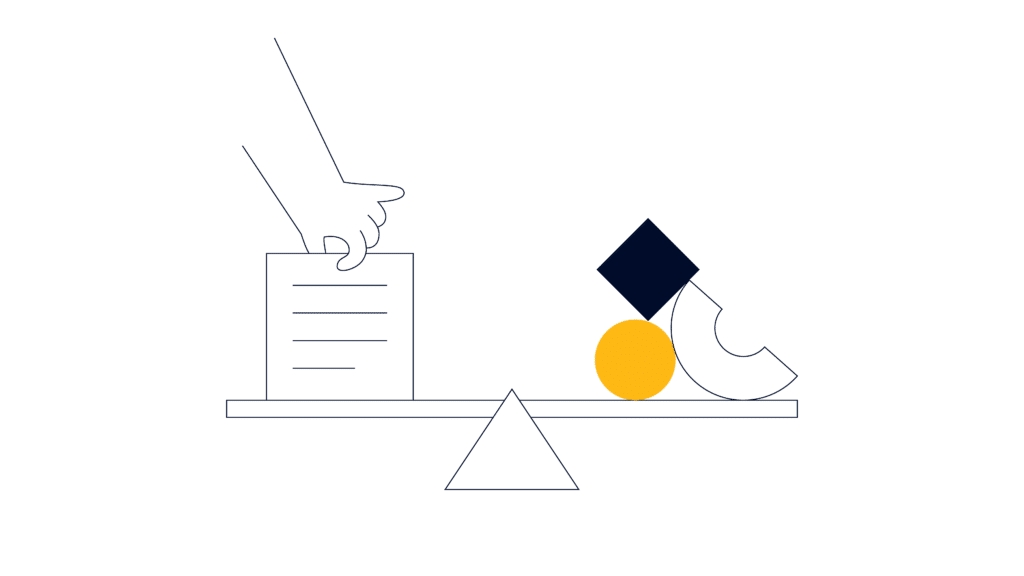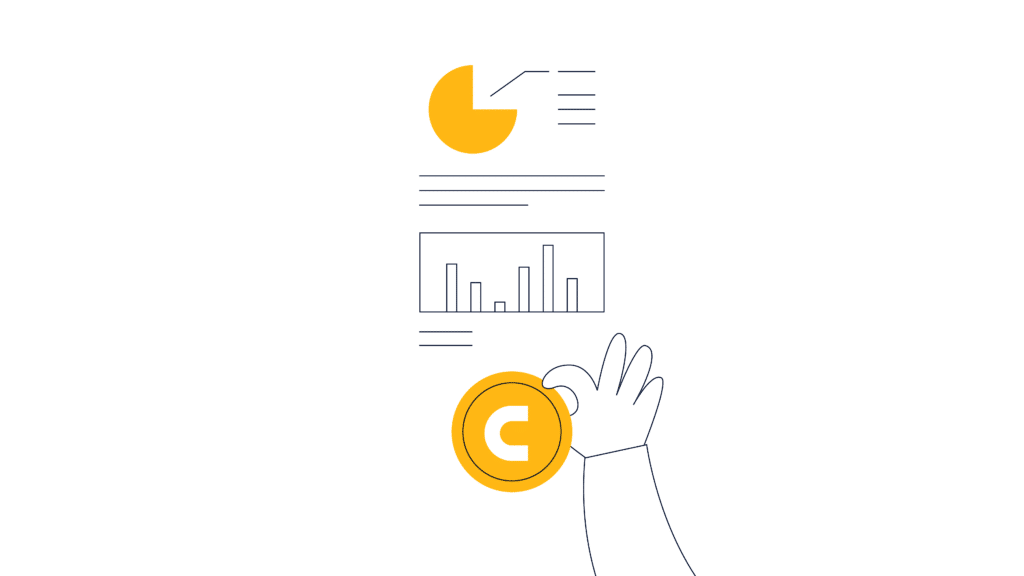Staying within budget, delivering on time, and having a well-staffed team—does that sound like your wish list for your next project? Then hiring a resource manager for your organization may be the transformative position you need.
Resources are intrinsic to any project. However, they are limited, expensive, and fragile—and they need to be allocated appropriately. Effective resource management makes the difference between organizations that are successful and profitable versus those drained of cash and assets.
In this article, we’ll explain what a resource manager is and how to integrate the role into your overall project management system.
What Is A Resource Manager?
A resource manager is an essential team member who is dedicated to resource management—that is, tracking and monitoring valuable aspects of a project through resource planning. These resources can be personnel, tools, materials, or other demands needed to complete the job.
Resource managers help analyze the overall capabilities when planning a project and can identify potential issues that may arise from resource allocation. They also play an important role in team communication and identifying solutions should any roadblocks arise in the project lifecycle.
What Do Resource Managers Do?
Managing a successful project requires more than just setting timelines and delegating tasks. A resource manager works alongside the project manager to ensure that resources such as the materials, staff, and budget allocated for the project are well accounted for. When in the project planning stage, resource managers are there to help forecast available resources. They will:
- Work with project managers for proper resource allocation, implementing the right resources for different projects. They may use templates from past projects or spreadsheets to help find and assign necessary resources.
- Develop schedules to prioritize needs and track resources coming in and outgoing. Resource managers may hire new employees and obtain other company resources as needed to plan for a project.
- Examine trends in resource availability and resource utilization, analyzing data to assess cost efficiency and making adjustments when needed
- Conduct capacity planning and review planned activities to make sure they can be accomplished with the available resources and help the project team look for alternate solutions if necessary.
- Adjust the resource plan when they run into curveballs like sick days, late shipments, and changing client demands. There are two main techniques to solve these challenges: resource leveling and resource smoothing.
- Keep an eye on capacity to help team members avoid burnout, optimize their time efficiently, and prevent any resource conflicts that arise when two projects need the same resource.
Bottom line, resource managers allocate company resources to various projects to ensure they have what they need to succeed.
3 Key Skills Resource Managers Need
Resource managers are an integral part of any business, playing a key role in the successful completion of projects. That’s why it’s important to hire resource managers who possess a blend of soft skills and technical skills.
Three key skills in resource manager jobs are:
1. Organization
A resource manager is tasked with keeping track of financial resources, staff, and company assets. Organization is key to keeping track of where resources are and when they can be allocated.
A good resource manager will be able to coordinate workflow and conduct prioritization while being mindful of project budgets—something that could have a huge impact on the success or failure of projects.
2. Technical Knowledge
Resource managers need first-hand experience and the knowledge that comes with that. Knowledge of project management and human resource management is essential for a successful resource manager.
This can come through real-world previous experience or education like a bachelor’s degree in human resources or business administration.
3. Communication
Resource managers may be dealing with multiple project managers day to day to ensure their resources are in place. They also can act as an intermediary between stakeholders, business leaders, and project managers. Communicating effectively is an essential resource manager skill to master.
By relying on these abilities and expertise, resource managers can play a vital role in ensuring that projects run smoothly and efficiently.
What Qualifications Do Resource Managers Need?
Becoming a successful resource manager requires knowledge of the tools and strategies that help to keep programs on track. Project managers who take this role will learn how to accurately estimate project timelines, create plans for optimum utilization of resources, and stay organized throughout the duration of the project. Having these qualifications is a great way to stand out:
- A professional certification such as the Resource Management Certified Professional (RMCP). This program offers certification for those who are proficient in resource management theory and application.
- Strong experience with resource planning, resource allocation, and forecasting. After all, it's the Resource Manager's job to determine what is needed, how much of it will be used, and how to manage it best.
- Familiarity with systems such as Scrum and Kanban. This arms resource managers with the skills needed to use these frameworks successfully.
- An understanding of ROI (return on investment) and experience developing strategies for increasing efficiencies across teams.
By mastering these concepts and continually refining their skill set, aspiring resource managers are sure to find success in this rewarding role.
Ultimately, reviewing the job description will give you the best idea of what project resources you would be managing—however, these qualifications are universal to the resource manager position.
How To Become a Resource Manager
If you're seeing some alignment in skills and qualifications and would like to take your shot at becoming a resource manager, follow these key steps:
- Build your educational background: Obtain a bachelor's degree in business administration, human resources, or a related field.
- Gain Relevant Experience: Work in entry-level positions in human resources or project management to get practical experience managing resources.
- Develop Key Skills: Focus on enhancing skills such as communication, leadership, strategic planning, and problem-solving.
- Pursue Specialized Training: Consider specialized training or certifications in resource management to improve your expertise and credibility.
- Build a Professional Network: Network with other professionals through industry events and professional organizations to find opportunities.
- Seek Advanced Roles: Apply for resource manager positions, highlighting relevant experience and skills in managing people, budgets, and materials.
- Continuous Learning: Stay updated with the latest trends and best practices in resource management through ongoing development.
What is the Average Salary of a Resource Manager?
The average salary for a Resource Manager varies depending on several factors, including geographical location, industry, and level of experience.
That said, the average salary for a Resource Manager in the United States ranges from approximately $60,000 to $100,000 per year. Entry-level positions may start at the lower end of this spectrum, while experienced managers in high-demand areas or in industries with larger budgets, such as technology or finance, can command salaries at the higher end.
Additional compensation and benefits such as health insurance, retirement plans, and performance bonuses can significantly add to the overall value.
3 Differences Between Project Managers & Resource Managers
Project managers and resource managers may have overlapping roles, but they are still two distinct types of positions with different focuses.
Scope
While project managers are responsible for maintaining timelines and ensuring deliverables meet the project requirements, resource managers prioritize smaller details such as managing costs and resources.
Such responsibilities include allocating resources based on availability, negotiating contracts, analyzing cost trends to ensure budget goals are met, and even recruiting new sources for required materials.
Reach
Project managers have a wide role in order to organize a project. They are often a middleman between business leaders, stakeholders, and their team members. They organize time, budgets, and assign specific tasks.
Resource managers communicate with project managers to find out what they need and manage those needs. They organize personnel within the company and purchase resources needed for projects.
Skills
Project managers must have great organization and communication skills. Resource managers usually have a background in human resource management or organizational development. RM’s must know an organization's manpower, staffing needs, and resources well to effectively utilize everything available to them.
6 Resource Management Techniques In Project Management
Here are 6 resource management techniques for resource managers to know.
1. Have A (Collaborative) Project Plan

During the course of a project, one of your main responsibilities as a project manager is to make sure that project scheduling and the availability of specific people to do those tasks align.
This isn’t a nut you need to crack on your own: sit down with your cross-discipline partner(s) in crime to discuss your estimate and general project plan before resourcing even begins.
A well thought-out project plan will help make sure your project is clear from the start in terms of which levels and individual skill sets are needed, and when. This is especially important when there are competing projects that are all after the same peoples’ time.
2. Shore Up Your Capacity Planning

Capacity planning is the process you use to schedule team member hours against a fixed amount of work. The ongoing exercise is to balance the availability of your colleagues with what the project requires as well as, of course, your budget.
You can’t effectively work out the time needed without breaking down those project tasks and understanding them, so use that project plan to establish a framework for the job as far as tasks go and then create your resource plan.
Your team will look to you (and, ideally, their discipline leads) to clarify the specific nature of the tasks and who will be working on them, and when.
For example, if your online advertising project requires a bunch of image cropping before going into more advanced animation, you probably want to assign the first task to one of the more junior members of the design team before it goes to a more senior animator. This should be worked out well in advance so you’re able to schedule in the right creative resources for the job, when you need them.
Once you have assigned tasks, it’s critical to monitor progress to ensure the project stays on schedule so work out between your team the best way to communicate briefings, deadlines, and deliverables to make sure everyone is on the same page with expectations.
It’s also worth being aware that too much oversight (or micro-management) can hurt morale. Try to strike a balance between overseeing the project and becoming an overbearing manager. A daily or weekly standup and regular communications over Slack (or another instant messaging tool), bolstered by rock-solid documentation and crystal clear task briefs, will work wonders.
3. Understand And Monitor Workload

Separate from capacity planning is workload. Workload management is the process of allocating the appropriate blocks of time that will allow a team member to succeed. Some tasks require longer periods of contiguous, uninterrupted time. Others are better when spread out and interspersed with other diverse tasks.
For example, when you’re planning capacity, you might see that your technical architect is free for 1 hour per day for the next three weeks.
- If you start on Monday, on paper it looks like you can get that integration strategy done by the end of the month.
- But if that individual is context switching across a different project every hour, the likelihood of that team member being able to switch gears, get reacquainted with your project’s requirements, and be in the right headspace to get meaningful work done in that hour is very, very low. They may be within capacity, but their workload will be too heavy for them to be effective.
- On the other hand, you may have a team member available to do data entry for twenty days straight, but by the end of that twenty days, their engagement levels and productivity levels probably won’t be all that high.
The bottom line here is this: just because someone on your team looks like they have capacity to get the task done doesn’t automatically mean that they won’t get overwhelmed with their workload.
4. Have Strategies To Keep Your People Utilized

Underutilization can also do harm to productivity and general team morale. Burnout sucks, but so does being bored. And because labor is often a project’s biggest expense, you should take care to assign all team members tasks that optimize their talents.
Part of this idea means adjusting the schedule so that they have just the right amount of work. Too much work causes stress, and too little work means sitting idle.
If folks get through their work quicker than what was set out in your resource plan, keep a little to-do list of project activities that can keep them busy.
If you’re part of a bigger company, work with your management and marketing teams to see if there are internal efforts that would benefit the greater good that could stop boredom settling in if work hits a dry patch.
The impact will be a more engaged team that isn’t constantly looking to exit.
Ever heard of self-managing teams? If you're wondering what that could mean for you, check this out: Project Teams Without Project Managers: Exploring The PM Dilemma (with Julia Ryzhkova from Railsware)
5. Don’t Neglect Your Equipment Resource Needs

While people are the most important resource in project management, the management of equipment required for the project can’t be ignored, either. I’m reminded of a story a colleague told me of a project where they nearly forgot to order the servers in time for a massive ERP implementation.
But it doesn’t have to be the big, obvious pieces of gear. For example, when bringing on new employees and contractors for your project, you may need to provide a laptop and the appropriate licenses for your cloud-based tools.
If it takes three days to get a tool subscription approved from the finance team, that could be three days of a team member being blocked from completing their task. That needs to get factored into your resource planning.
To keep your ducks in a row when it comes to equipment, strong asset management and procurement processes should be part of that consideration set:
Assess What You Have
Is your company’s list of equipment up to date? It’s possible you already have what you need in your inventory. Make sure you compile a complete, accurate, up-to-date list of the equipment you have access to, real and cloud-based.
Assess What You Need
Once you acquire what you need, there are other elements to equipment resource management. For instance, maintenance is an important equipment-related project resource management task. If you fix something before it breaks, you can avoid unnecessary and unexpected expenses down the road.
Reallocate When Necessary
Sometimes, if a piece of equipment is idle for one task, you can move it to a different task to keep the production moving along. It doesn’t always make sense to spread equipment resources evenly among tasks.
Figure out how to deploy your equipment where your project(s) need it most. This is a fluid situation that could benefit from a resource scheduling tool. Software can help not only with the allocation of equipment now but also forecasting when you may need to reallocate down the road.
6. Master Budget Management

The resource that is surprisingly the most overlooked when planning project resources is actually money. Financial resources are the enabler that allows you to have the people and equipment you need—it’s the fuel for the fuel.
According to FinancesOnline, 28 percent of projects fail because of inaccurate cost estimates. Going over budget clearly will hurt the project’s bottom line. However, going under budget isn’t always beneficial either. Management may see the discrepancy and think that the company could have used the funds allocated to your project elsewhere. The most important principle in budgeting is accuracy.
For project managers, this places added emphasis on cost management. To keep costs in line, you have to allocate the right budget resources. In fact, your budget sets the boundaries for the management of your other resources.
Budget Resource Management Tasks
Budget resource management involves four primary tasks:
- Planning: Identify the resources you will need before the project begins.
- Estimation: Quantify the costs required to obtain the resources you identified in the planning stage.
- Budgeting: Assign a financial value to each task, fit tasks into a timeline, and set milestones to judge efficiency.
- Controlling: Measure the actual costs of the project against the budget and implement a plan for reining in any deviations in cost.
The alignment of finances with resources underpins a project’s success. If your resources don’t meet the necessary requirements, you run the risk of delaying your timeline and increasing costs. If your resources are overqualified, costs can spike.
Let's Get Resourceful
Resource managers are an important part of an overall project management team. They ensure that the workload is balanced and that project activities are completed in a timely fashion.
To help you do the job well, both resource management software and time tracking software can be great tools. We’ve ranked the best options on the market and noted their pricing to help you find the right option. For more great tips like this, be sure to subscribe to The Digital Project Manager newsletter.
Want to connect with other digital project managers to share resources and best practices? Join the DPM Community to get access to 100+ templates, samples, and examples and to connect with other digital project managers.


